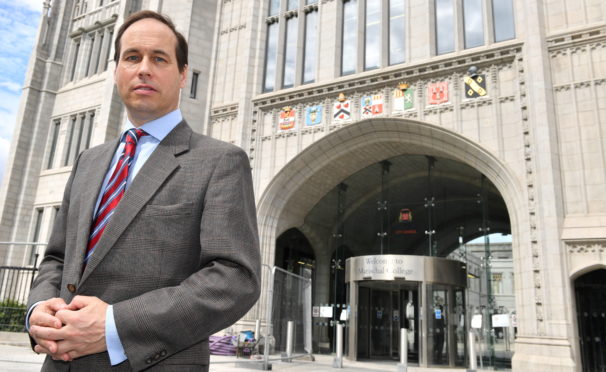Motorists, grieving families, disabled and elderly people, young couples and recyclers are among those to have been hit by soaring charges for council services in recent years.
Council body Cosla estimates that fees and charges faced by residents for services provided by Scottish local authorities increased by 7% in the last year alone, amid an ongoing battle to balance rising demand and diminishing funding.
And just this month, a series of new charges were due to come into effect at the start of the next financial year.
Recent budget decisions in Aberdeen paved the way for rise of between 7% and 14% for a civil marriage at Marischal College or the Town House, while there was an 18% increase in cemetery burial fees, and a 100% rise in the price of installing a memorial bench in a public park.
There was also a 200% rise in the cost of day care for elderly and disabled people, a 159% increase in the cost of a community alarm and a 100% rise in the price of respite care.
Councillors also agreed a 10% rise in bulky waste collection fees, a 14% increase in the cost of skip permits, a 20% rise in HMO fees, an 18% rise in the cost of individual music lessons, and a 10% increase in the price of using sports pitches and swimming pools.
Despite figures showing the city council makes a “surplus” of about £4 million a year from parking and related services, there was also a 14% rise in price of parking at several city centre car parks.
Opposition Liberal Democrat city councillor Martin Greig said: “It is very worrying that councils across the UK have are now in the habit of relying on parking fees and fines as an essential extra fund.
“The £4m that car owners put into the city coffers is needed to balance the books. This source of income contributes towards general public services such as schools and social care.
“It seems unfair that this is yet another form of taxation that does not relate to a person’s ability to pay and is instead based on driving activities.
“Our tax system allows this anomaly to continue because it fails to provide the levels of income that our public services need.”
A spokesman for Aberdeen City Council said: “The financial constraints the council is operating under are severe – with reduced grant funding coupled with increasing costs and rising demand. Our budget focuses on ensuring the best outcomes for individuals and communities whilst protecting the most vulnerable in our city.
“Income generation is vital in enabling us to maintain key services – with 86% of the council’s income generated through council tax, non-domestic rates and local fees and charges rather than central funding.”
Highland, Moray and Argyll and Bute councils are also among the local authorities which raise more money than they spend on parking, according to Scottish Government figures.
Aberdeenshire Council, meanwhile, has just held a consultation on cutting the free parking period, paving the way for a fee of 50p for the first hour and then £1 for one to two hours, £3 for two to five hours, and £5 for any period over five hours.
The P&J has recently highlighted the soaring cost of funerals in the north and north-east, with standard fees at Inverness Crematorium having more than trebled over the last 20 years, to £931 with use of the chapel, while charges for interment at Highland cemeteries have doubled since 2010/11.
Councillors in the Highlands have also recently discussed new charges for public use of vehicle electricity charging points, as well as increasing income from planning and building warrants, lets of schools and other facilities, and charges relating to radio masts.
Moray Council has now introduced a £36 annual charge for garden waste collection, agreed an 8% rise in price for use of marriage room in Registry Office, a 40% rise in surcharge for marriages in all venues outwith the Registry Office, and an increase of between 40% and 70% rise for community centre admission.
